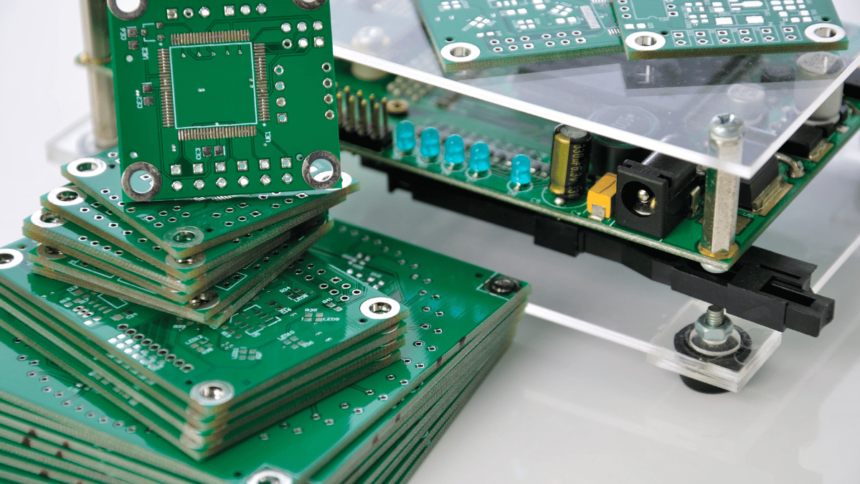If you are looking to design circuit boards in your spare time or even if you are planning on doing it all for a living, you are going to want to do the best job that you possibly can. There are plenty of core principles that are involved in PCB design, and making sure that you have full knowledge and mastery of every one of them can end up going such a long way towards improving all that you are doing. There are several different components involved in better PCB design work, but the following blog post will be examining just a few of the core facets. Continue reading to learn more.
Ultimately, like many other career paths out there, it is all about ensuring that you are fully in harmony with all that you are doing. This way, you are going to be much more likely to improve in PCB design in the way that you would want to. So, let’s look at a few of the core principles that can end up giving you such a major helping hand.
Have a Core Understanding of Electronics
If you end up studying PCB design without any element of electronics within it, you can easily end up in a situation in which you simply do not have the necessary core level of understanding. For this reason, there are many people out there who start in electronics before they end up eventually progressing in the world of PCB design. Even if you have already started in the latter, there is always going to be the option out there that you go back to taking a course in electronics as a way of developing your skills and giving yourself that solid grounding at a later point in time.
Get Familiar with the Design Software
If you are going to have a hope of progressing in the world of PCB design, you are certainly going to need to have a high level of understanding of the design software as a whole. You should know all of the different functions that are going to play a role, and you should also be able to get used to the principles of circuit board design that are within. Ultimately, the advancement of the design software out there gives you much more of a scope to ‘play around’, ensuring that you are fully comfortable with all that you are doing.
Take on a DIY Approach When You Are Learning
In some ways, this can feel like it goes in contradiction to the point that has previously been listed, but it can work quite nicely in harmony with it. After all, you are going to need to fully understand how the PCB work. There are plenty of automated tools that will help you to cut corners along the way, but the main problem with them is that you can end up with a serious lack of understanding as to how it all works. Therefore, you should certainly look to take on a DIY approach, to begin with. Once you understand everything that is going on, you can then end up in a position in which you can speed everything up a bit.
Ensure All of the Components Are Properly Spaced Out
Now we come to one of the core principles of PCB design that is going to be worth taking firmly into account. Ultimately, you certainly need to make sure that you are properly spacing out all of the components. Otherwise, the functionality of what you have produced can end up being seriously hampered. If you space everything out properly, this can end up making some of the other aspects much easier, such as both the wiring and the soldering, which are right at the heart of all that you are trying to accomplish. Making things easier for yourself just makes sense.
Start to Mount the Smaller Components First
When you come to putting the printed circuit board together, it can end up being highly tempting to mount the larger components first before moving on to the smaller ones. However, it is going to be worth taking the opposite approach firmly on board. Putting in the larger ones can create a situation in which blockages will easily start to occur. So, if you are wanting to reduce the errors that are likely to occur right from the outset, it is certainly going to be worth taking on the opposite approach.
Always Commit to Keep Improving Your Skills
While you may already feel like you have some excellent PCB design work principles firmly in place, it is always going to be worth putting yourself in a situation in which you are firmly ready to make any improvements as and when they spring up. Ultimately, the higher the level of commitment to continual improvement, the better you are likely to do in the long run. After all, this is a field that is constantly developing at all times and if you simply assume that it is going to stay firmly in one place at all times, then this can result in a problem in your long-term goals and your eventual career path.
Learn from Your Peers
Linked closely to the previous point that has just been made, it is also going to be worth putting yourself in a position in which you are learning from your peers at all times. While it may well feel like it is that type of job that is highly isolating, you are bound to find that there are people out there who know an awful lot more than you. When you can learn and develop from them, this can truly make all the difference in how well you can progress and at what speed, as well. There you have just a few of the major principles that are involved in PCB design and ensuring that you are as skilled as you possibly can be in the process as a whole.



![Netflix Cookies [Hourly Updated]](https://aperfectreview.com/wp-content/uploads/2023/02/Netflix-Cookies-150x150.png)


